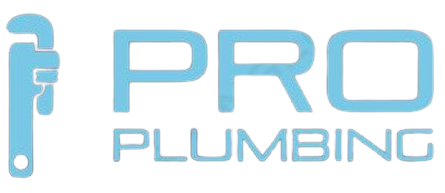A well maintained plumbing system improves home comfort and provides a safe living environment. The top plumbing tips every homeowner should know include unclogging drains safely, monitoring water pressure regularly, and regularly checking for any signs of wear or damage. It is essential to address small leaks in time and know where your shut off valve is located to prevent structural damage and water waste.
Taking care of your pipes and keeping your drains clear helps extend the lifespan of your system and prevents costly repairs.
Top Plumbing Tips For Homeowners For an Efficient System
It is estimated that approximately 14000 homeowners will need plumbing services each day to mitigate emergencies in the future. Plumbing issues can be costly but you can avoid emergency repairs by taking care of your system. Every homeowner should be able to handle simple tasks like unclogging minor blockages and fixing simple leaks. By staying proactive, you can save money, reduce water waste and keep your plumbing system functional and your home safe.
| Did you know? Flooding from damage is one of the leading causes of property damage nationwide but plumbing disasters like pipe bursts are the number one cause of water damage to homes. |
Here is your guide to understanding some key plumbing tips for a safe and efficient system.
- Unclogging Drains Safely
Drains can clog due to debris or hair. Every homeowner should periodically flush them with hot water or a baking soda plus vinegar solution for a smoothly functioning system. Alternatively, you can use a plastic drain snake or a plunger to remove a minor blockage. Call a plumber if you think the problem is complex.
- Monitoring Water Pressure Regularly
Both low and high pressures can cause damage to your plumbing. Install a water pressure monitoring gauge and check it periodically to prevent leaks and damage.
| Important fact The common materials used for pipes in American homes include PVC, PEX, Copper and ABS. |
- Avoid Harsh Chemicals
Don’t use chemical drain cleaners as they can cause damage to your plumbing and fixtures. You can try the hot water flush out or any gentle home remedy to tackle minor clogs.
- Use Garbage Disposal Correctly
Avoid pouring food scraps and grease for the smooth functioning of the system. Coffee grounds, egg shells, bones or any other small item can clog your sink disposal.
- Fixing Clogged Toilets
Instead of using harsh chemicals, you should try unclogging by pouring hot soapy water. Let it stand for a while and then use a plunger. Don’t flush any other product like wipes or diapers and know that excessive toilet paper can also lead to clogs.
- Routine Inspections
Regularly check your pipes for any signs of corrosion, wear, cracks or leaks. Look for any watermarks or mold signs on walls or pipes to detect hidden leaks. Check the water meter and water pressure regularly to look for any signs of damage requiring repairs.
| Fast Fact Silent leaks are the most damaging and can occur anywhere from behind walls to under floors, ceilings and in the home’s foundations. |
- Addressing Small Leaks in Time
For minor leaks in pipes, tighten the threads timely. Shut off the water supply, unscrew the pipe, and wrap the threads to prevent a small leak. For leaky faucets, replace the washers or O rings, to prevent damage from becoming extensive if left unaddressed.
- Insulate Pipes Before Winter
It’s best to insulate your exposed pipes in basements or crawlspaces before winter to prevent pipe bursts. Look for any sign of cracks or leaks to get repairs in time and prevent costly damage.
- Know Where Your Shut Off Valve Is
Every homeowner should know where the main shut off valve is located to turn off the water supply in case of any sudden catastrophe. This can help contain any secondary damage like mold growth and extensive structural deterioration.
| Did you know? If your property has mature trees, you should consider a sewer line inspection. Tree roots’ intrusion can result in blockages or broken pipes. |
- Schedule Professional Inspections
A licensed plumber has the expertise and tools to handle complex repairs efficiently. Routine inspection and care are essential but scheduling annual professional inspection helps avoid unexpected repairs. It can extend the lifespan of your system and prevent emergency repairs.
Conclusion
Regular maintenance of the plumbing system by homeowners makes a home environment safe and healthy. By staying proactive, you can extend your system’s life, reduce water waste and ensure smooth functionality. A healthy plumbing system improves home value and reduces the risks of leaks or bursts. Timely repairs, upgrading, and annual professional inspections result in a reliable system.
FAQs
What is the most likely time for pipe deterioration?
In winter, pipes are more likely to deteriorate and burst due to freezing.
How often should plumbing pipes be replaced?
Get your pipes inspected every 2 years. Copper pipes last for up to 50 to 70 years, while PVC can last for up to 25 to 40 years.
Why is there white scale on my faucets?
It indicates hard water problems resulting in reduced water pressure and clogged appliances.
